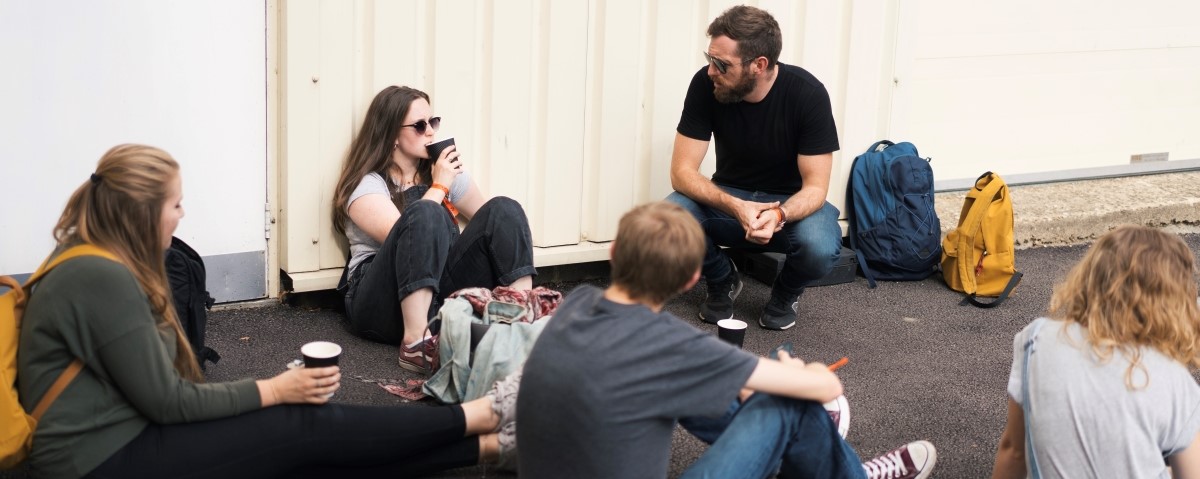introduction
Many Christians when they look back see that there was a long process taking place that moved them towards a point of making a decision. Many others cannot even pinpoint a specific time that they made a decision, they have just gradually found themselves following more and more after Jesus. It is important that we recognise the process and journey people take in giving themselves to God's way of life.
If this is the case, much of our response will be to help people move further along in their journey towards finding God. Acts 17 talks about God determining the exact places where people live in order that they would seek him and reach out to him and find him. The words seeking, reaching, and finding suggest that becoming a Christian is an ongoing journey of discovery and salvation, not about a one-off decision.
welcome
What is the silliest thing you’ve ever done?
worship
read
This passage tells us many things about what it means to be a follower of Jesus. Go through the different points in order to provide a foundation for your praise.
word
Traditionally, evangelism has been about making decisions. It is still true today that we want to see our friends deciding to enter into a relationship with God. However, the framework around that has changed. Many are recognising that we now live in a pagan society in which an understanding of the Gospel message is no longer a given. Because of this, before people can make a decision that is meaningful, they have to understand some basic realities and truths of the Christian message.
How do your average non-Christian friends see God? What do they think God is like? What do they think Christians are like?
read
questions
What is this parable about? What does it tell us about evangelism?
There are a number of different ways of interpreting this parable. The first is that it is to do with understanding. It tells us that there are three types of bad soil for those who don’t understand.
- Those who understand absolutely nothing: seed on the path.
- Those who understand something: the rocky soil converts, because they received the word with great joy.
- The thorny soil converts also understand something, but not everything.
Finally, there is the good soil: people who understand what Christianity is about and have honest hearts.
This tells us two things. As we evangelise, we want to make sure that, through our words and lifestyle, people understand what Christianity is about and, secondly, that they come to a place of honesty where they realise that they need God.
So, we could look at this in three stages:
Stage One - People need to know God is good and we’re okay.
Stage Two - They need to understand the content of the Gospel.
Stage Three - They need to have a way to respond.
application
The evangelism we do should engage with people where they are at, in their language and culture. It should encourage and provoke people to daily make decisions to seek after, reach out to, and find more of God. It is unrealistic to expect our friends to have the same values, beliefs and morals as we do. We can challenge them as we chat, and through our lifestyle. It is important we don’t confuse our responsibility to be Jesus to people with God’s responsibility to convict them of sin and save them.
The evangelistic process can take anywhere from a week to a number of years. People can go through the entire process, attend a small group for a few weeks, and then become a Christian - without going to any kind of Christian event or attending any church service. You and your small group may decide on an event or a series of mini-events may help that process, but be sure that such events will be relevant and positive. A cringey event can rob you of progress. Where small groups are part of a wider structure such as a church, network of churches or C.U., events can be planned to serve the small group network evangelistically.
witness
In the light of the above, take the rest of the time to look at the following questions and pray together.
- What stage are your friends at?
- How can you help them move a stage further?
- What specific things could you pray into their lives?


